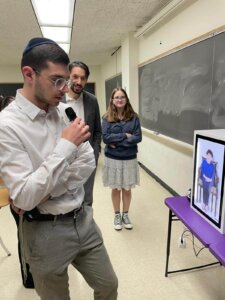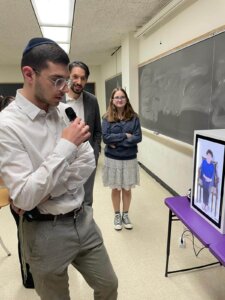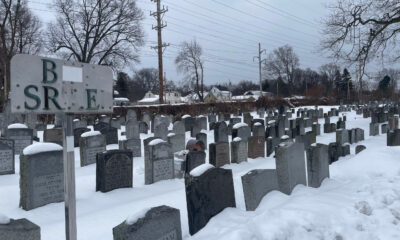Uncategorized
As Qatar Emir Visits Canada, Just What is Doha Up To?

By HENRY SREBRNIK (Sept. 19/24) Qatar…home of Hamas leaders, Al-Jazeera, host of soccer’s 2022 World Cup, and wealth beyond measure. And everyone’s favourite centre for “negotiations” to end the war Hamas unleashed on Israel a year ago. It’s become everyone’s go-to country, a veritable “light unto the nations.”
However, as the 1946 song “Put the Blame on Mame” has it, in a different context, of course, “That’s the story that went around, but here’s the real lowdown” … about this duplicitous Persian Gulf emirate.
Even before the Gaza war began, there was an upswing of commentary celebrating a shift in the policies and behavior of Qatar: away from promoting and subsidizing radical Islamist groups, and towards “deconfliction” and moderation.
Sheikh Tamim bin Hamad Al Thani, the country’s emir, has been basking in the glow of international approval, depicting the country as a global influencer and peacemaker. The Qataris want to make themselves indispensable.
It plays into Doha’s ongoing attempts to create an illusion of rebranding as a moderating actor in the Middle East and beyond, pushed by various propagandists in the West on Qatar’s payroll, including more than a few American university centres and departments awash in Qatari money.
The emir and other officials spent two days in Canada Sept. 17-19, meeting with Prime Minister Justin Trudeau and cabinet ministers. The Gaza war was on the agenda, of course. Indeed, Jewish-Canadian leaders urged Trudeau to criticize him over his patronage of Hamas. But being able to tap into Qatar’s wealth via business and trade was more likely on Trudeau’s mind.
Qatar has one of the highest per capita incomes in the world, at $110,000 a year. And while its total population is some 2.7 million, most of these are guest workers, including European lawyers and consultants at the top of the scale, and at the bottom South Asian labourers. Only some 313,000 are native Qataris, the ones who benefit from the riches it derives from the sale of oil and gas.
The Peninsula, an English language daily newspaper published in Doha, ran an article on the occasion of the emir’s visit by noting the expanding trade and investment cooperation between Canada and Qatar, especially with the signing of a Memorandum of Understanding (MoU) in June between the Qatar Financial Center and the Canada Arab Business Council, a non-profit organization that aims to enhance trade and investment relations between Canada and the Arab world.
The MoU “aims to establish an integrated framework for cooperation and coordination in specific sectors through joint initiatives and the exchange of information and expertise, with a focus on stimulating growth and promoting innovation in areas such as financial services and professional business services.” Ahmed Hussen, Minister of International Development participated in a signing ceremony with Lolwah bint Rashid Al-Khater, Qatar’s Minister of State for International Cooperation.
More than 9,000 Canadian expatriates live in Qatar, working in Canadian and Qatari companies and institutions. From January to July, Canada exported goods valued at $103.45 million to Qatar, while Qatar’s exports to Canada amounted to $90.27 million.
There is also a partnership in academic programs, as the University of Calgary has been in Doha since 2006, offering a Bachelor of Nursing program, along with the College of the North Atlantic, which transformed into the University of Doha for Science and Technology. Furthermore, there are several Doha-based schools that offer Canadian curricula.
In their meeting, Sheikh Tamim expressed his aspiration to work with Trudeau to advance their bilateral cooperation across multiple sectors in order to “contribute to enhancing regional and global peace and stability.” Bilateral relations between the two countries were discussed, especially in the fields of investment, economy and international cooperation, “in addition to developments and situations in the Gaza Strip and the occupied Palestinian territories.”
Qatar has been very successful in its efforts to shape public opinion in Canada, as well as in the far more important United States. The amount of money that Qatar has poured into universities, schools, educational organizations, think tanks, and media across America, and the number of initiatives that Qatar uses to influence American opinion, is overwhelming.
According to a 2022 study from the National Association of Scholars, Qatar is the largest foreign donor to American universities. It found that between 2001 and 2021, the petrostate donated a whopping $4.7 billion to U.S. colleges. The largest recipients are some of America’s most prestigious institutions of higher learning. They include Carnegie Mellon University, Ivy League Cornell University, Georgetown University in Washington, Virginia Commonwealth University, and Texas A & M. These schools have partnered with the regime to build campuses in Doha’s “education city,” a special district of the capital that hosts satellite colleges for American universities. (Texas A&M decided earlier this year to shutter its branch campus in Qatar.)
Georgetown University in Qatar, for instance, was hosting the “Reimagining Palestine” conference Sept. 20-22. The event engages scholars, experts, and the public “in timely and relevant dialogues on globally significant issues,” according to a description of the gathering. One of the speakers, Wadah Khanfar, “was active in the Hamas movement and was one of its most prominent leaders in the movement’s office in Sudan,” the Raya Media Network, a Palestinian outlet, tells us. In the months following Oct. 7, the campus has hosted a variety of seemingly anti-Israel events.
Since 2008, Qatar has donated nearly $602 million to Northwestern University, whose journalism school is ranked as one of the best in the world, to establish a school of journalism in Qatar. The Northwestern University campus in Qatar and Qatari broadcaster Al-Jazeera in 2013 signed a Memorandum of Understanding to “further facilitate collaboration and knowledge transfer between two of Qatar’s foremost media organizations.” Are Northwestern’s interests really aligned with Qatar?
Qatari state-financed entities also often fund individual scholars or programs in the United States without official disclosure or being directly traceable to a government source, thus avoiding public scrutiny. For example, Ivy League Yale University disclosed only $284,668 in funding from Qatar between 2010 and 2022. Researchers at the Institute for the Study of Global Antisemitism and Policy (ISGAP) in a report released in June, though, found that this amount reflected only a small fraction of the money and services the university and its scholars had in fact received over that period. The most common channel for hard-to-track Qatari support for Yale came from individual research grants originating from the Qatar National Research Fund, and their report found 11 Yale-linked QNRF grants which came to at least $15,925,711.
Recent research from the Network Contagion Research Institute indicated that at least 200 American universities illegally withheld information about approximately $13 billion in Qatari contributions. Also, according to the report, from 2015 to 2020 institutions that accepted money from Middle Eastern donors had on average, 300 percent more antisemitic incidents than those institutions that did not.
Overall, the report found that “a massive influx of foreign, concealed donations to American institutions of higher learning, much of it from authoritarian regimes with notable support from Middle Eastern sources, reflects or supports heightened levels of intolerance towards Jews, open inquiry and free expression.”
Much of Doha’s engagement with the world is run out of the Qatar Meeting, Incentive, Conference and Exhibition (MICE) Development Institute (QMDI), which promotes Qatar as a good place for business. The annual Doha Forum gathers major policymakers from around the world.
Qatar’s influence-buying strategies are a textbook example of how to transform cash into “soft” power. The relationship between one of Washington, D.C.’s top think tanks and Qatar, for example, began in 2002, when the emirate underwrote a Doha conference featuring then Qatari Foreign Minister Hamad bin Jassem Al Thani and former U.S. Ambassador to Israel Martin Indyk, at the time the director of the Saban Center for Middle East Policy at Brookings. (Hamad oversaw Qatar’s $230 billion sovereign wealth fund until 2013.) In 2007, Brookings followed up by opening a centre on Doha. It didn’t end well. In 2021 the institute ended its relationship with Qatar amidst an ongoing FBI investigation.
Still, Washington treads carefully when it comes to criticizing Qatar. It’s not just about money. After all, the Al-Udaid Air Base is home to the U.S. military’s Central Command (CENTCOM), and the country is just across the Persian Gulf from Iran. In fact, Washington’s relationship with Qatar is so close that in 2022 the White House officially designated the emirate a “major non-NATO ally.” The Qataris, realizing that their very existence would be threatened were the U.S. to relocate its CENTCOM operations to the UAE or Saudi Arabia, in January hastened to nail down the agreement for another decade.
Yoni Ben-Menachem, a senior researcher at the Jerusalem Center for Security and Foreign Affairs, told the Jewish News Service (JNS) that the Gulf country is more dangerous than Hamas or Hezbollah since it is extraordinarily wealthy and thus in a position to influence U.S. administrations.
Qatar has for many years been involved in financing the campaigns of the Democratic Party, he claimed, “especially Hillary Clinton’s campaign” in 2016. He added that former U.S. President Bill Clinton is known to have flown to Qatar to bring back suitcases full of cash.
According to Jonathan Ruhe, director of foreign policy at the Jewish Institute for National Security of America (JINSA), Qatar has portrayed itself as “indispensable to U.S. interests in the Middle East, including negotiations with the Taliban, reconstruction aid for past Gaza conflicts, and building the massive Al-Udeid base for U.S. forces.”
Yet although it hosts the Pentagon’s regional command, Qatar has long supported terrorism. For decades, it has opened its doors to Islamist terrorists, Taliban warlords and African insurgents. Doha housed the Taliban’s political office before that group returned to power in Afghanistan in 2021.
Beginning in 2012, the Israeli government allowed Qatar to deliver cash to Gaza. Over the next nine years, Qatar provided $1.5 billion. Prior to the outbreak of the present conflict, Doha subsidized Hamas to the tune of $360 million to $480 million a year. With one third of that money, Qatar bought Egyptian fuel that Cairo then shipped into Gaza, where Hamas sold it and pocketed its revenue. Another third went to impoverished Gazan families, while the last third paid the salaries of the Hamas bureaucracy.
The leaders of Hamas, including Khaled Mashaal and the late Ismail Haniyeh, who was chairman of the Hamas Political Bureau until assassinated by Israel in July, have been regular guests in Doha, living in luxury. (The emir sat in the front row with mourners during Haniyeh’s funeral in Doha.) Qatar has defended Hamas’s presence in the country.
“This was started to be used as a way of communicating and bringing peace and calm into the region, not to instigate any war,” Prime Minister Mohammed bin Abdulrahman Al Thani told U.S. Secretary of State Antony Blinken last October. “And this is the purpose of that office.” Blinken seemed to buy this. At a press conference in Doha in February, he asserted that “we’re very fortunate to have Qatar as a partner.”
As far back as 2007, when Hamas seized control of Gaza, Qatar recognized that “adopting” the group would be a worthwhile opportunity: connections with Hamas in Gaza grants Qatar influence and status in the Middle East and beyond. In addition, they bolster the popular Arab perception of Doha as working for the Palestinian cause. In 2012, the emir became the first head of state to visit Gaza, pledging $400 million to Hamas. At the same time, the Qataris became the exclusive mediators between Israel and Hamas.
The U.S. has accused the Qataris of harboring members of Iran’s Islamic Revolutionary Guards Corp (IRGC). But at the same time the Qataris are an important intermediary between America and Iran. Doha has enjoyed good relations with the Biden administration, which it helped in the American hasty withdrawal from Afghanistan three years ago.
While organized as a private company, the Al-Jazeera television network is the voice of Qatar’s regime. Founded in 1996 and financed by the then-emir of Qatar, it has described terrorist attacks that killed Israeli non-combatants as martyrdom operations and even posted articles describing Israel as “the Zionist entity.” For years, Al-Jazeera aired all of Osama bin Laden’s speeches. The late Muslim Brotherhood spiritual leader Yusuf Al-Qaradawi was based in Doha and for years hosted a prime-time program on the network. The war on Israel was declared on Al-Jazeera by Hamas military commander Muhammad Deif last October 7. Its operations in Israel were finally terminated by Jerusalem in May.
Qatar has been using the immense wealth it has accumulated to turn Al-Jazeera into an international media conglomerate, spreading Muslim Brotherhood propaganda, Hamas’ original sponsor, on a global scale. The Muslim Brotherhood was founded in Egypt in 1928 by the cleric Hassan al-Banna as a reaction to his perception that the Muslim world had become week in relation to the West. The royal family of Qatar has since been using the Muslim Brotherhood to minimize political opposition against them. In exchange for allowing the Brotherhood to use the country as a base for its international operations, the Brotherhood makes sure that there is no political threat based on organized religion against the Qatari monarchy.
A major shock to Qatar’s economy occurred when some Gulf Cooperation Council members — Bahrain, Saudi Arabia, and the United Arab Emirates — imposed an embargo on Qatar from 2017 to 2021. The reason for the embargo was Qatar’s support for the Brotherhood.
Qatar owns other news media that are equally awful. The London-based daily newspaper Al-Quds Al-Arabi in June published an article entitled “War Criminal Blinken Wages Diplomatic Campaign to Eliminate Palestinian Resistance and Buy Time for Israeli War in Gaza.”
Qatar is not a neutral agent, despite its attempts to portray itself as such. Time and again, it has supported the region’s most radical nations and paramilitaries, all to the detriment of American and Western interests. Its malign influence activities the United States reflect the broader issue of foreign manipulation in America’s political landscape.
“Qatar has been playing a dual role since the beginning of the Gaza war. On the one hand, it is a well-known supporter of Hamas, and even finances it with a lot of money, and on the other hand, it is trying to help in the deal for the release of the Israeli hostages,” remarked Dr. Udi Levy, a former senior official of Israel’s Mossad spy agency in April. But the U.S. relationship with Qatar will continue as long as the American government finds it useful in the on-again off-again negotiations to have Hamas release the remaining Israeli hostages.
Henry Srebrnik is a professor of political science at the University of Prince Edward Island.
Uncategorized
Spike Lee, Kyrie Irving wear pro-Palestinian outfits to NBA All-Star Game featuring first Israeli player
(JTA) — Deni Avdija scored five points and made four assists and one dunk in his first NBA All-Star Game — the first All-Star appearance ever for an Israeli player.
But while Avdija’s Team World squad fell short against the league’s top American players, his appearance continued to generate excitement for Israelis, who have viewed his success on the court as a matter of national pride.
Avdija’s jersey featured an Israeli flag on the back, in keeping with the uniform for Team World.
“I feel like when I come to play, I come with the entire nation, and it’s fun to show that it’s possible, even for a small country like us,” he said during a postgame press conference, in which most questions were asked and answered in Hebrew.
Lebron James, too, was asked by an Israeli reporter about Avdija’s performance and about Israel during his own postgame availability.
“I hope I inspire people over there not only to be great in sports, but to be better in general in life,” James said. “Hopefully, someday I could make it over there. Like I said, I’ve never been over there, but I’ve heard nothing but great things. I appreciate the question.”
Some cultural events featuring prominent Israelis since the start of the war in Gaza have been subject to anti-Israel demonstrations. There were no disruptions at the All-Star Game, but two prominent fans wore outfits designed to show pro-Palestinian solidarity.
The filmmaker Spike Lee wore a Palestinian flag-inspired outfit, with a keffiyeh-patterned sweater and flag badges on his bag strap.
The basketball player Kyrie Irving, meanwhile, wore a T-shirt that said “PRESS” on the front. The shirt, produced by the company Wear the Peace, says inside that it is “dedicated to our beloved journalists in Gaza showing the world the truth.” Irving had previously worn the shirt to another NBA game.
Irving, who was not playing in the All-Star Game, was traded to the Dallas Mavericks from the Brooklyn Nets in 2023 shortly after promoting an antisemitic film on his Twitter account and at first refusing to apologize for the tweet.
The post Spike Lee, Kyrie Irving wear pro-Palestinian outfits to NBA All-Star Game featuring first Israeli player appeared first on The Forward.
Uncategorized
As the last generation of Holocaust survivors die, is AI the future of Holocaust education?

At a Brooklyn synagogue on a recent Monday afternoon, a video of Holocaust survivor Sonia Warshawski played on a two-foot-tall box. Seated in a leopard-print chair, her hands folded in her lap, Warshawski blinked and nodded her head expectantly on a continuous loop.
“Did anyone else from your family survive?” a Hebrew school student asked the AI-powered avatar.
The video cut to a separate clip. Warshawski said she and her sister had survived. Her brother, mother and father did not.
Warshawski, who survived three concentration camps and ran a tailoring shop in Kansas City until 2023, had made it part of her life’s mission to tell her story wherever she could. She spoke with students, filmed the 2016 documentary Big Sonia about her life, and was even a guest speaker at a local prison.
But Warshawski knew she wouldn’t live forever. So in 2021, with the help of the interactive media company StoryFile and her granddaughter’s production company, Inflatable Film, Warshawski recorded answers to hundreds of questions about her life, from “What do you remember about the death march?,” to “Why do you like leopard print so much?” Those answers were loaded into an AI-powered avatar of Warshawski that can converse through a video screen, which debuted as an exhibit at the Museum of Kansas City last year.
The technology also caught the attention of the Blue Card, a nonprofit that provides financial assistance to Holocaust survivors in need. The organization adapted it into a portable format and brought the virtual Warshawski to 20 schools and community centers across the New York area over the past year, with plans to expand nationwide. A parallel effort from the USC Shoah Foundation, called “Dimensions in Testimony,” also enables students to have conversations with virtual versions of Holocaust survivors.
The initiative reflects recognition that as survivors age, a model of Holocaust education built on firsthand testimony will be increasingly difficult to sustain. No lesson plan can match the impact of hearing directly from survivors, many of whom dedicate their golden years to speaking tours retelling their traumatic stories. But 90% of the world’s roughly 200,000 living Holocaust survivors are projected to die in the next 15 years. And for aging survivors — who have already lost so much of their lives to violence and deprivation — the weight of transmitting Holocaust memories to the next generation is a burden they cannot shoulder alone.
“It’s absolutely the future of Holocaust education,” said Masha Pearl, the Blue Card’s executive director. “It actually is as close as possible to hearing a live survivor speak.”
Warshawski’s story
Warshawski grew up in Międzyrzec, Poland, and was 17 years old when she and her family were forced into a ghetto. Sonia and her mother were deported to the Majdanek death camp, where she watched Nazis march her mother to her death via gas chamber. Warshawski was then sent to Auschwitz-Birkenau, where she was forced to spread her fellow prisoners’ ashes as fertilizer, and then to the Bergen-Belsen concentration camp, where she was shot in the chest on liberation day.

She recovered and met her husband, John, at the Bergen-Belsen displaced persons camp. The couple moved to Kansas City in 1948.
Using AI technology, students can ask the virtual Warshawski about all of those harrowing moments — with the added benefit that the real-life Warshawski only had to recall them once.
Many survivors “suffer from depression and PTSD, and it’s very difficult for them to recount these extremely painful experiences,” Pearl said. “This actually bypasses that in a way.”
The interactive element is also engaging for kids, Pearl said. At the Conservative synagogue Temple Sholom, after watching Big Sonia, nearly all 25 students ages 10 to 13 — half from the parochial school at the church across the street — raised their hands to ask the virtual Warshawski a question. A few students stayed after the programming had formally ended to ask more.
“It’s the same thing I heard from my uncle’s great grandpa,” said fifth-grader Noah Stein, who attends Hebrew school at Temple Sholom. “It’s amazing — I’ve never seen something like that.”
An imperfect technology
Warshawski, now 100 years old and still going strong, celebrated her birthday in November at a party with more than 1,000 people. But she doesn’t have as much energy as she used to and was unavailable to interview for this piece. So I interviewed her avatar instead.
My question — how she felt about her memory being preserved through AI — triggered an unrelated response.
“After we left [Majdanek], there were still people there, and I must tell you, one day when I was…”
“Can we pause this?” said Rechan Meshulam, special projects director at the Blue Card, who operated the technology at Temple Sholom.
Meshulam said the system had not matched my question to the correct response. She then manually selected the closest question, “Are you glad that you recorded this with StoryFile?”
“I feel this is a very important thing for the people in the world, not to forget and [to] read more about it. Read more history,” Warshawski said. “I’m very grateful that I had a chance to do it. I am thanking the Almighty for it, to give me the strength still to go on.”
The initial mismatched response illustrated the technology’s limits: Warshawski can only answer questions that StoryFile asked her during the original interview in 2021. If a question is similar enough, the AI is designed to redirect Warshawski to the appropriate answer. But this didn’t seem to work in practice. Whenever a student asked a question outside the suggested question bank, operators had to ask the student to rephrase — or pause Warshawski and jump in with their own knowledge about her story.
But according to Pearl, the limited scope of questions is a feature, not a bug. Limiting Warshawski to questions she actually answered prevents her words from being taken out of context or misconstrued, Pearl said.
“Sonia cannot tell you what the weather is today, what her thoughts are on politics — anything that’s really current,” Pearl said. “She can only speak to her experience.”
Not everyone draws the same line. Last year, a Utah-based tech startup called SchoolAI drew controversy for its AI-generated version of Anne Frank, which spits out responses that Frank never wrote herself. Henrik Schönemann, a German historian who tested the chatbot, found AI-Frank avoided holding Nazis responsible for her death and spun her story in an overly positive light.
“How anyone thinks this is even remotely appropriate is beyond me,” Schönemann posted to social media, adding that the technology “violates every premise of Holocaust-education” and amounted to “a kind of grave-robbbing.”
SchoolAI, which also offers the ability to chat with historical figures such as Alexander Graham Bell and Frederick Douglass, said it was implementing additional safeguards to help characters more directly address difficult questions.
I asked SchoolAI’s Anne Frank chatbot about how Frank feels about comparisons between ICE agents and the Gestapo. She didn’t take the bait.
“That’s a difficult question. When I lived in hiding, the Gestapo and police searched for people like us because of who we were, not because we had done anything wrong. I was always afraid,” AI-Frank wrote. “I believe it’s important to treat people with humanity and fairness, no matter their situation. What matters most is how we treat one another, especially those who are vulnerable.”
Yet even with careful control over the accuracy of testimony, some educators are uncomfortable with the idea of immortalizing Holocaust survivors in an interactive form.
In a research paper titled “Creating the ‘virtual’ witness: the limits of empathy,” Corey Kai Nelson Schultz argues that digital versions of Holocaust survivors can have the effect of undermining empathy. Viewers may treat the avatars more like virtual assistants than people, he wrote, and could be tempted to gamify the experience or test the technology’s limits.
Schultz told the Forward he prefers more traditional forms of Holocaust education — seeing artifacts like survivors’ shoes or toys, or watching video testimonies — mediums he believes better capture survivors’ humanity.
But the technology’s novelty was part of the appeal for Warshawski’s granddaughter, Leah, who directed Big Sonia — and said the AI component is just one more way to ensure her grandmother’s story lives on.
Warshawski “does authentically, passionately believe that everybody needs more education, and specifically, Holocaust education. And if this is the way to do it in the future, then so be it,” Leah told the Forward. “You know, ideally, everybody would be able to read more books.”
Pearl said the survivors she works with also have a different set of worries.
“We actually didn’t hear any ethical issues or concerns,” Pearl said. “The concerns that we heard were, Who will tell my story after I’m no longer here?”
The post As the last generation of Holocaust survivors die, is AI the future of Holocaust education? appeared first on The Forward.
Uncategorized
Board of Peace Members Have Pledged More Than $5 billion for Gaza, Trump Says

A drone view shows the destruction in a residential neighborhood, after the withdrawal of the Israeli forces from the area, amid a ceasefire between Israel and Hamas in Gaza, in Gaza City, October 21, 2025. Photo: REUTERS/Dawoud Abu Alkas/File Photo
US President Donald Trump said Board of Peace member states will announce at an upcoming meeting on Thursday a pledge of more than $5 billion for reconstruction and humanitarian efforts in Gaza.
In a post on Truth Social on Sunday, Trump wrote that member states have also committed thousands of personnel toward a U.N.-authorized stabilization force and local police in the Palestinian enclave.
The US president said Thursday’s gathering, the first official meeting of the group, will take place at the Donald J. Trump Institute of Peace, which the State Department recently renamed after the president. Delegations from more than 20 countries, including heads of state, are expected to attend.
The board’s creation was endorsed by a United Nations Security Council resolution as part of the Trump administration’s plan to end the war between Israel and Palestinian Islamist group Hamas in Gaza.
Israel and Hamas agreed to the plan last year with a ceasefire officially taking effect in October, although both sides have accused each other repeatedly of violating the ceasefire. According to Gaza’s Health Ministry, more than 590 Palestinians have been killed by Israeli troops in the territory since the ceasefire began. Israel has said four of its soldiers have been killed by Palestinian militants in the same period.
While regional Middle East powers including Turkey, Egypt, Saudi Arabia, Qatar and Israel – as well as emerging nations such as Indonesia – have joined the board, global powers and traditional Western US allies have been more cautious.






